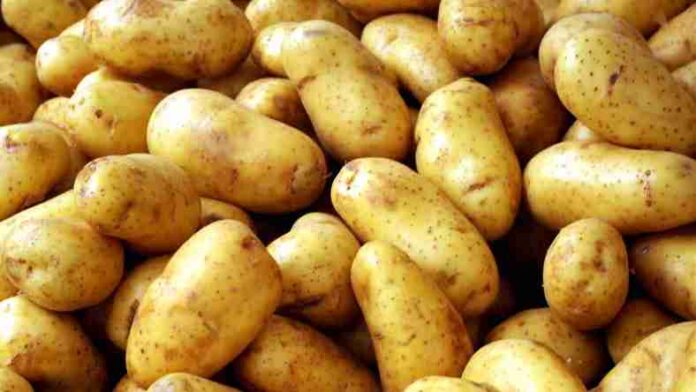Potatoes often get a bad reputation, particularly in diets that focus on low-carb or low-starch intake. However, these versatile root vegetables pack a surprising nutritional punch and can be a valuable part of a balanced diet. From essential vitamins and minerals to a high fiber content, potatoes offer more than just a satisfying bite—they contribute to overall health and wellness in ways that many people may not realize. Let’s take a closer look at the nutritional benefits of potatoes and why potatoes deserve a prominent spot on your plate.
Nutritional Profile Of Potatoes
Potatoes are made up primarily of carbohydrates, with a balance of water, protein, and minimal fat. The bulk of their caloric value comes from complex carbohydrates, which provide a steady, slow-release energy source. A medium-sized potato (about 5.3 ounces or 150 grams) contains approximately 110 calories, making it a nutrient-dense option with relatively low calories when cooked without added fats.
But it’s not just about carbs. Essential minerals, including potassium, vitamin C, vitamin B6, and fiber, are all abundant in potatoes. Potassium is particularly noteworthy; it’s a crucial mineral that supports heart health, nerve function, and muscle contractions. In fact, a single potato contains more potassium than a banana, making it a valuable addition for those who need to manage blood pressure or support cardiovascular health.
Vitamin C in potatoes also boosts immunity and supports skin health. Although vitamin C is more frequently linked to citrus fruits, potatoes are a surprisingly efficient way to obtain this crucial antioxidant, as one serving can supply 30% of the daily necessary dose.
Health Benefits Of Potatoes
Potatoes offer several health benefits that go beyond their satisfying taste. Here’s why incorporating them into your diet can be beneficial:
- Supports Digestive Health
Potatoes contain both soluble and insoluble fiber, primarily found in the skin. This fiber aids in digestion, promoting healthy bowel movements and preventing constipation. Additionally, potatoes’ high fiber content promotes feelings of fullness, which may aid with weight management. Moreover, potatoes contain resistant starch, a type of carbohydrate that acts similarly to fiber. Resistant starch is digested slowly, reaching the large intestine, where it supports healthy gut bacteria, promoting overall digestive health.
- Regulates Blood Pressure
Potatoes are naturally sodium-free, which is beneficial for blood pressure management. Potatoes can help promote a heart-healthy diet because of their high potassium level, which helps to offset the effects of sodium in the body. Ultimately, potassium reduces heart strain and relaxes blood vessel walls to assist maintain normal blood pressure levels. Eating foods like potatoes that are high in potassium can help lower the prevalence of hypertension, which is a major risk factor for heart disease.
- Boosts Immune System
Vitamin C boosts collagen production, absorbs iron, and protects cells from free radicals. Vitamin C, which is abundant in potatoes, especially when they are fresh, can boost immunity and shorten the duration of illnesses like the common cold. Including potatoes in a balanced diet can provide a natural boost to the body’s defenses.
- Improves Mental Health And Brain Function
Vitamin B6, which is found in potatoes, is a nutrient that is necessary for the production of neurotransmitters such as norepinephrine, serotonin, and dopamine. These substances have an impact on mental health, stress levels, and mood regulation. A steady supply of vitamin B6 through foods like potatoes can help maintain optimal brain function and support emotional well-being.
- Provides Lasting Energy
Potatoes include mostly complex carbs, which digest more slowly and deliver energy gradually as opposed to quickly spiking and then crashing. This makes potatoes an excellent choice for athletes or anyone needing endurance throughout the day. Unlike processed carbs, the slow-digesting nature of potato starch helps manage blood sugar levels and reduces sudden energy crashes.
Choosing And Preparing Potatoes
To reap the full benefits of potatoes, preparation is key. Baking, boiling, or steaming are among the healthiest ways to cook potatoes, as they preserve the nutrient content without adding extra fats. Because a large amount of fiber and nutrients are found in the skin, it is also advantageous to leave the skin on. Avoid frying potatoes or loading them with toppings high in saturated fats, as this can negate many of their health benefits.
Final Thoughts
Potatoes are more than a comfort food; they’re a nutrient-rich vegetable with numerous health benefits. From supporting heart health to aiding digestion and enhancing immunity, potatoes are a versatile and valuable addition to a balanced diet. By choosing healthy cooking methods and pairing them with other nutrient-dense foods, you can enjoy potatoes as a wholesome part of your daily meals. So next time you’re meal-planning, consider adding potatoes—not only for their taste but also for the wealth of nutrients they bring to the table.
